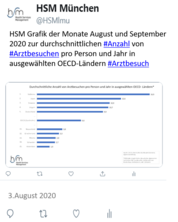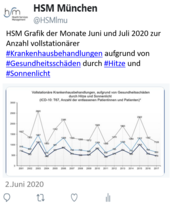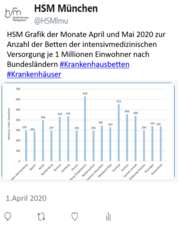The cost-effectiveness of HLA matching in penetrating keratoplasty
| Autoren/Herausgeber: |
Bäumler, M. Sundmacher, L. Reinhard, T. Böhringer, D. |
|---|---|
| Erschienen: | 2014 |
| Publikationsart: | Articles in Refereed Journals (International) |
| ISBN/ISSN: | 0266-4623 |
| erschienen in: | International Journal of Technology Assessment in Health Care |
| Weitere Quellenangabe: | Volume 30 (1), pp 50-58 |
Abstract
Background
The matching of favorable human leukocyte antigen (HLA) combinations is rarely performed in penetrating keratoplasty procedures for primary prophylaxis of immune reactions. However, clinical studies suggest that the incidence of graft rejection decreases substantially when patients receive favorably matched grafts.
Objective
The aim of this study was to assess the cost-effectiveness of HLA matching for patients undergoing penetrating keratoplasty in everyday clinical practice.
Methods
In the absence of a randomized controlled clinical trial, we used administrative data from the Freiburg University Eye Hospital in Germany. Our study population consisted of all patients who underwent their first keratoplasty between 11/2003 and 01/2010 and for whom information on HLA histocompatibility was available. We used propensity score matching to estimate a causal effect of favorable HLA matching, parametric survival regression techniques to predict graft survival and expert opinion to model incremental cost for HLA matching. Because the availability of favorable HLA histocompatibility ultimately depends on the patients’ HLA phenotype, we modeled the incremental cost-effectiveness ratio (ICER) as a function of the probability that a patient will receive a favorably matched HLA, and used expert opinion to set a point estimate.
Results
We predicted that corneal grafts with favorable HLA matching were associated with improved rejection-free graft survival time (more than 1,000 days). We estimated the incremental cost of HLA matching at EUR 1,200 and the ICER at EUR 4.62 per additional day of graft survival.
Conclusions
The ICER of HLA matching is acceptable, given the high cost of alternative treatment and the shortage of corneal donors in Germany.





